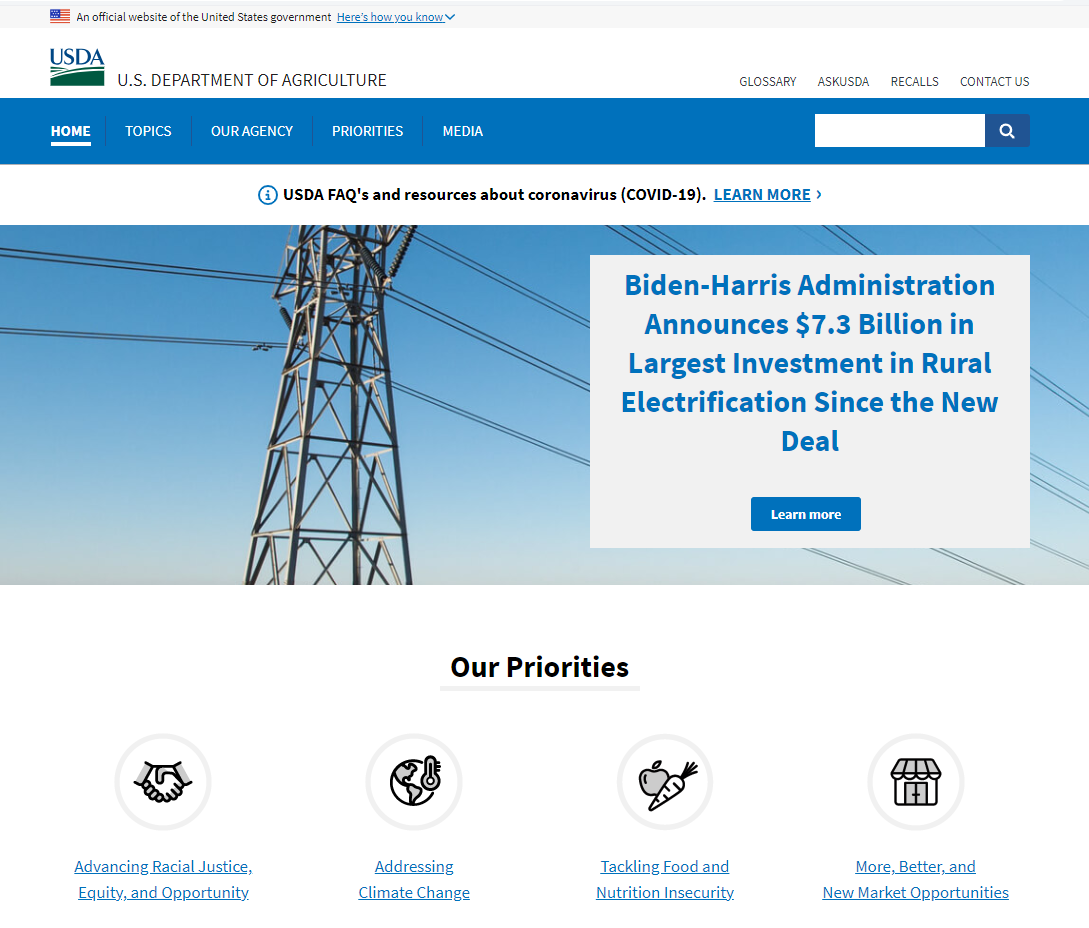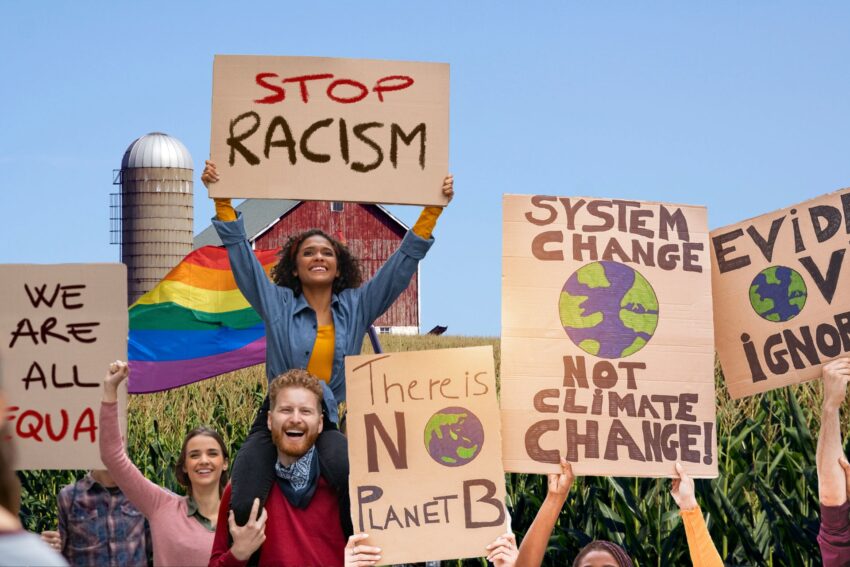In an era where the foundational principles of government agencies are increasingly questioned, the United States Department of Agriculture (USDA) stands as a poignant example of how original mandates can be overshadowed by contemporary ideological battles. Once an institution dedicated to supporting American farmers, enhancing agricultural productivity, and ensuring food security, the USDA has veered into realms many argue are far removed from its core mission.

From Agriculture to Activism
The USDA’s homepage now prominently features commitments to “Advancing Racial Justice, Equity, and Opportunity” and “Addressing Climate Change.” While many consider these to be important societal issues, critics argue that they represent a significant shift from the USDA’s primary role. Instead of focusing on the practical needs of farmers—ranging from soil conservation to crop innovation—the USDA appears to be aligning itself with broader political and social agendas.
Some might even say that the USDA has gone “woke” and that this transformation happened a while ago.
1/
Wokeness took over yet another government agency!In 2016 the Department of Agriculture held a summit to celebrate Lesbian farmers, teach LGBTQ people how to get government money, and to ask people to stop associating farmers with white males.
The USDA is Woke
A thread🧵 pic.twitter.com/mRdnSaTfcr
— Wokal Distance (@wokal_distance) June 6, 2024
Critique of Priorities
Advancing Racial Justice, Equity, and Opportunity: “Equity” is a big buzzword these days, being one of the most contentious parts of D.E.I., as equity means certain racial and social groups are given special preference (not equality before the law), while other groups (specifically White people, who are the majority of American farmers) are inherently discriminated against, supposedly to rectify past injustices. The approach to “equity” taken by the USDA has been criticized for potentially creating more division than unity. By focusing on race-based initiatives, there’s an implication that agriculture needs fixing through racial lenses rather than through economic or practical agricultural improvements. This could alienate a significant portion of farmers who feel their challenges are more about market access, technological advancement, or environmental regulations rather than racial equity.
This issue was recently brought to the fore when VP nominee JD Vance called the USDA’s race-based payments to “farmers of color” disgraceful for discriminating against White farmers.
Addressing Climate Change: The USDA’s emphasis on climate change, while supported by the globalists of the UN and WEF, is a rather contentious and politicized issue. Some argue that it has led to policies prioritizing environmental activism over agricultural practicality. For instance, pushing for environmentally friendly practices and conservation is vital, but when these initiatives come at the expense of traditional farming methods without considering the economic viability for small farmers, it risks undermining the very livelihoods it’s supposed to support.
Also, it needs to be noted that “fighting climate change” harms farmers, as atmospheric CO2 is a great fertilizer and increases crops’ drought tolerance.
A Convenient Truth: ‘Climate Change’ Is Awesome for Agriculture
The DEI and SDG Connection
This shift is not isolated but part of a larger trend where Diversity, Equity, and Inclusion (DEI) initiatives, alongside the United Nations’ Sustainable Development Goals (SDGs), are being integrated into various government functions. These goals, while supposedly noble in their intent, often come with a one-size-fits-all approach that might not serve the diverse needs of American agriculture. Critics have voiced concerns that this integration represents a “Communist creep,” suggesting an overreach of government into areas traditionally left to individual or local decision-making.
The Ideological Overreach
The integration of DEI and SDGs into USDA policies can be seen as part of a broader ideological overreach. Critics argue this reflects a move towards a more centralized, perhaps even globalist, approach to governance where national sovereignty and local expertise are sidelined in favor of universal standards that might not fit all contexts. This “Communist creep” narrative suggests that such policies could lead to a diminishment of individual freedoms and economic independence, core tenets of American agricultural life.
Now the USDA looks like every other multinational corporation forcing “wokeness” down the throats of average Americans.
Period. 🏳️🌈🏳️⚧️ pic.twitter.com/BZ7zim4drX
— Dept. of Agriculture (@USDA) June 2, 2023
Many feel the USDA has completely abandoned their mission, as well as small farmers and their values.
The USDA only exists today to squash family farms via policy that industrial AG is exempt from. The days of grading steaks are over, this agency has been fully weaponized to oversee the transfer of wealth from small families to large corporations. That's it!
— Breeauna Sagdal (@Breeauna9) June 3, 2023
Indeed, under the USDA’s watch, the number of small farms has dropped dramatically as massive agribusinesses have taken over more and more farmland.
Conclusion
The USDA’s approach has sparked a significant debate about the role of government agencies. Should they focus on their original mandates, or evolve to address broader societal issues? The contention lies in whether this evolution serves the farmers and the nation’s food security or if it’s a detour into ideological territories that might not yield the agricultural prosperity it once promised.


